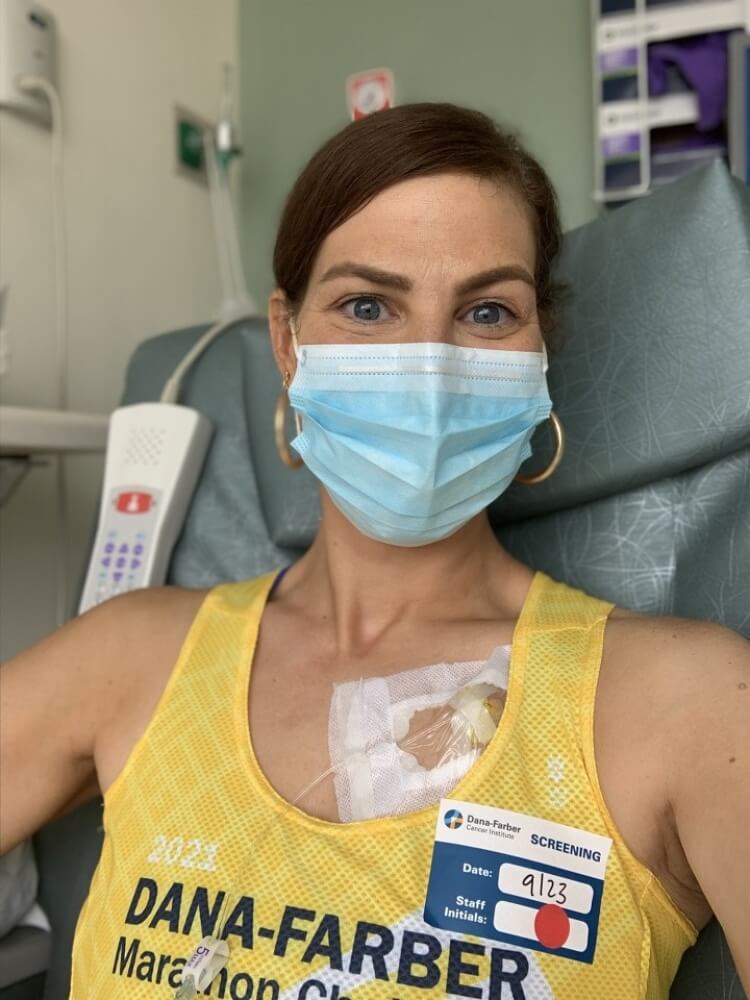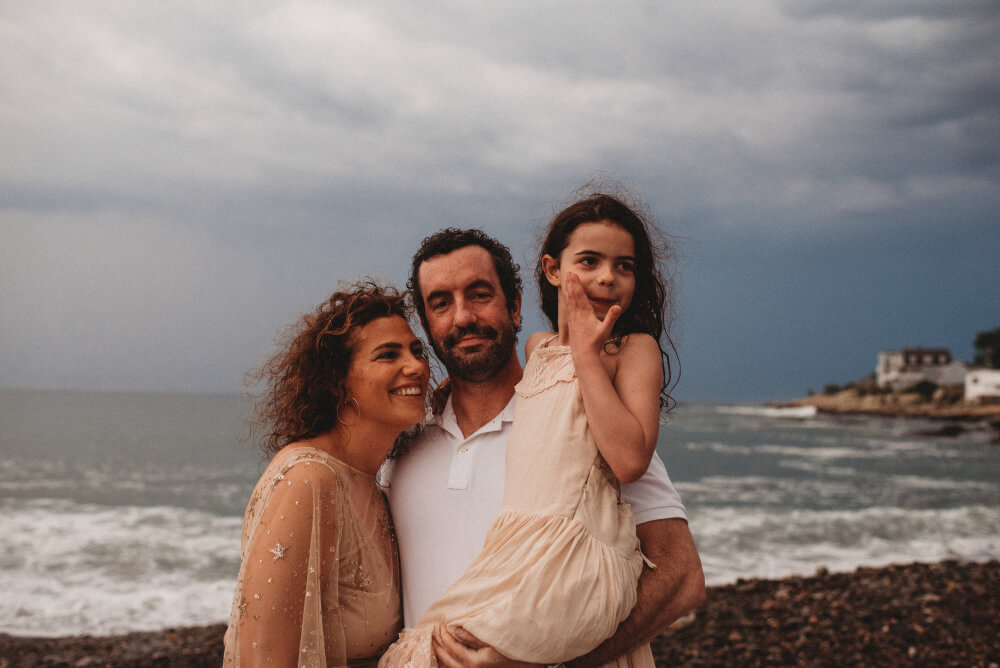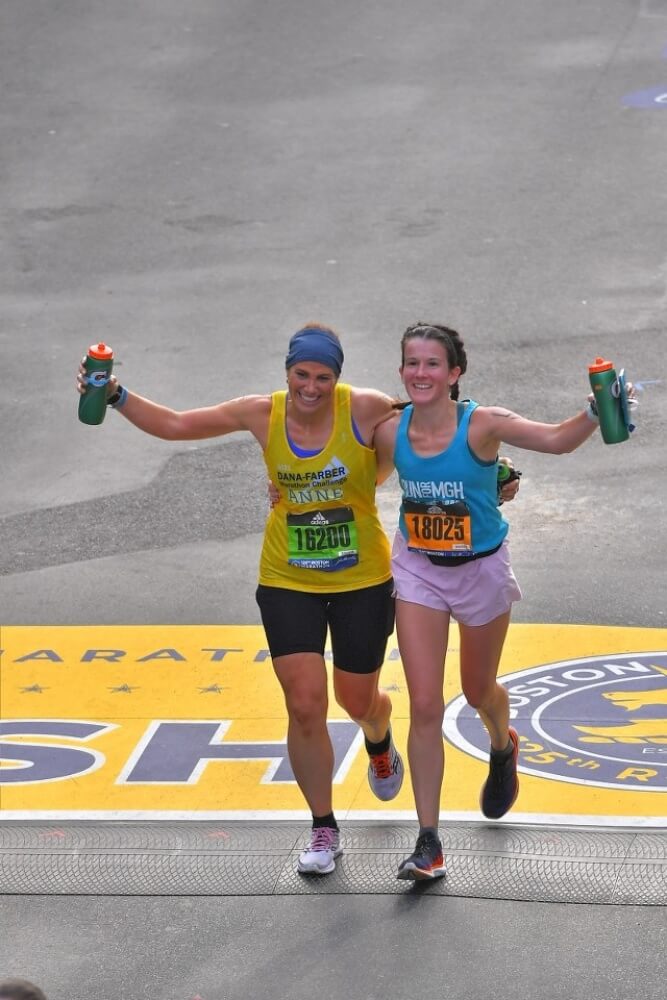Anne Keane is a big fan of counting, from laps swam to miles ran to birthdays celebrated by her daughter Ruby. The most recent was Ruby’s seventh, and Keane plans on marking many more as she continues enjoying an active lifestyle with metastatic breast cancer (MBC).
“We’re just so lucky to get to wake up every day and move,” says Keane, 42, who was diagnosed in 2016. “Not all people have that opportunity.”
This outlook is just what staff in the Breast Oncology Program at Dana-Farber Brigham Cancer Center had in mind when creating the EMBRACE (Ending Metastatic Breast Cancer for Everyone) program. Through EMBRACE, doctors, nurses, social workers, and other clinicians provide personalized treatment plans and support to patients like Keane whose breast cancer has spread to other parts of their body. EMBRACE also hosts forums that include findings from Dana-Farber researchers seeking to slow the advance of MBC and lengthen survivorship.
“Anne didn’t take a metastatic breast cancer diagnosis to mean that she’s going to stop living her life,” says Sara Tolaney, MD, MPH, Keane’s oncologist and chief of the division of Breast Oncology in the Susan F. Smith Center for Women’s Cancers. “In fact, she took it in the other direction. She’s going to live life to its fullest — working full-time and raising a young daughter through all of her therapy. It’s just been amazing to see.”

Shock and survival
Keane has never been one to move in low gear. She and her husband met in college, where both competed on the swim team, and she later became an avid runner. Even a baby did little to slow her down; while Ruby was still a toddler, Keane was back in the pool and working full-time.
It was then, in 2016, that Keane began experiencing pain in her sternum. At first doctors thought it might be a problem with her heart, but it turned out to be HER2-positive breast cancer that had spread to her bones and liver. Like all forms of MBC, it was incurable.
“The shock of hearing it was not just breast cancer, but metastatic breast cancer, was devastating,” Keane recalls. “Especially as a new mom, it was a pretty sharp left turn.”
Initially, Keane says, she had a hard time dealing with her diagnosis — and treatment. Tolaney and the rest of her Susan F. Smith Center care team provided tremendous support, and Keane responded well to her first chemotherapy regimen. But she still felt “in a fog” and struggled emotionally.
Then she met another young mother with MBC who was still running road races. She encouraged Keane to join Young and Strong, a Susan F. Smith Center program focused on the challenges faced by young adults with breast cancer. There Keane encountered more individuals who were not letting the challenge of ongoing MBC treatment and an uncertain future prevent them from setting and reaching goals.
“The ability to connect with people who had lived three or four years with the disease was so important,” Keane says. “I realized it felt better to get moving again.”

Extraordinary response
Keane returned to juggling workouts around her job, time with Ruby and other family, and her ongoing treatment. Her employer embraced her need for a healthy work-life balance, and her Susan F. Smith Center care team was a regular source of inspiration.
“I can’t imagine having anybody else on my corner,” says Keane. “Dr. Tolaney is always tweeting about new research, and the clinic is connected by a bridge to the research labs. When I sit in my infusion chair, I can see the researchers working outside my window.”

Aided by what Dana-Farber investigators are learning about MBC, Tolaney and other clinicians can create individualized treatment plans for their patients. In Keane’s case, first-line therapy included two antibodies (herceptin and pertuzumab) designed to target and “turn off” the HER2-positive receptors that bind to the surface of cancer cells and signal them to grow. The treatment proved so effective that Keane has remained on it for six years.
“Usually, patients are on their first treatment for metastatic HER2-positive disease for 18 to 24 months,” says Tolaney. “Anne has far exceeded that average, and has had an extraordinary response.”
So much so that in October 2021, as a way of giving back, Keane ran the Boston Marathon — raising money for treatment and research as part of the Dana-Farber Marathon Challenge team. On the back of her running singlet she wrote a message: “I have metastatic breast cancer. What’s your superpower?”
“All along the route, people were cheering me on and coming up to share their stories,” Keane says. “I just felt so lucky and blessed.”
